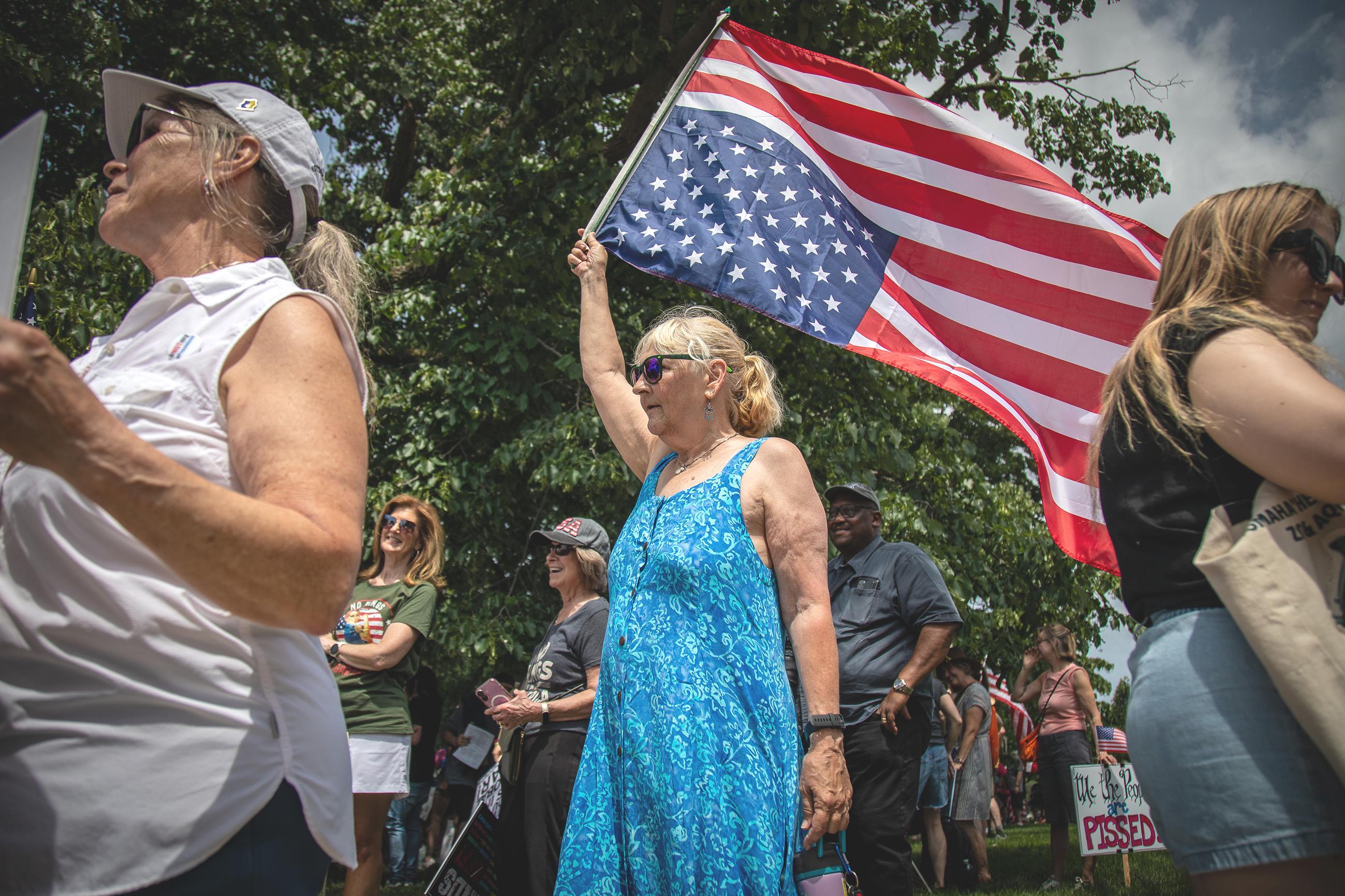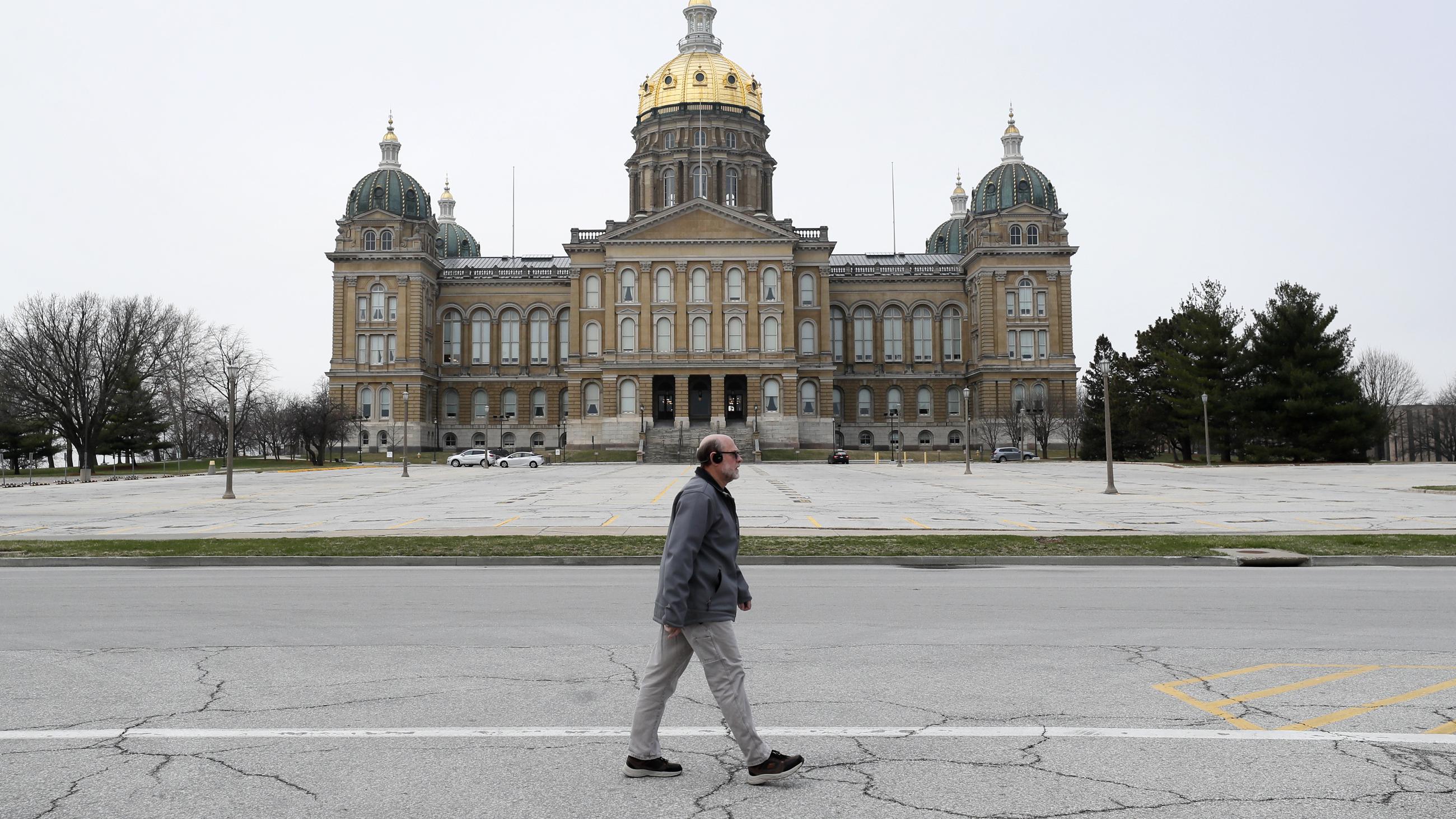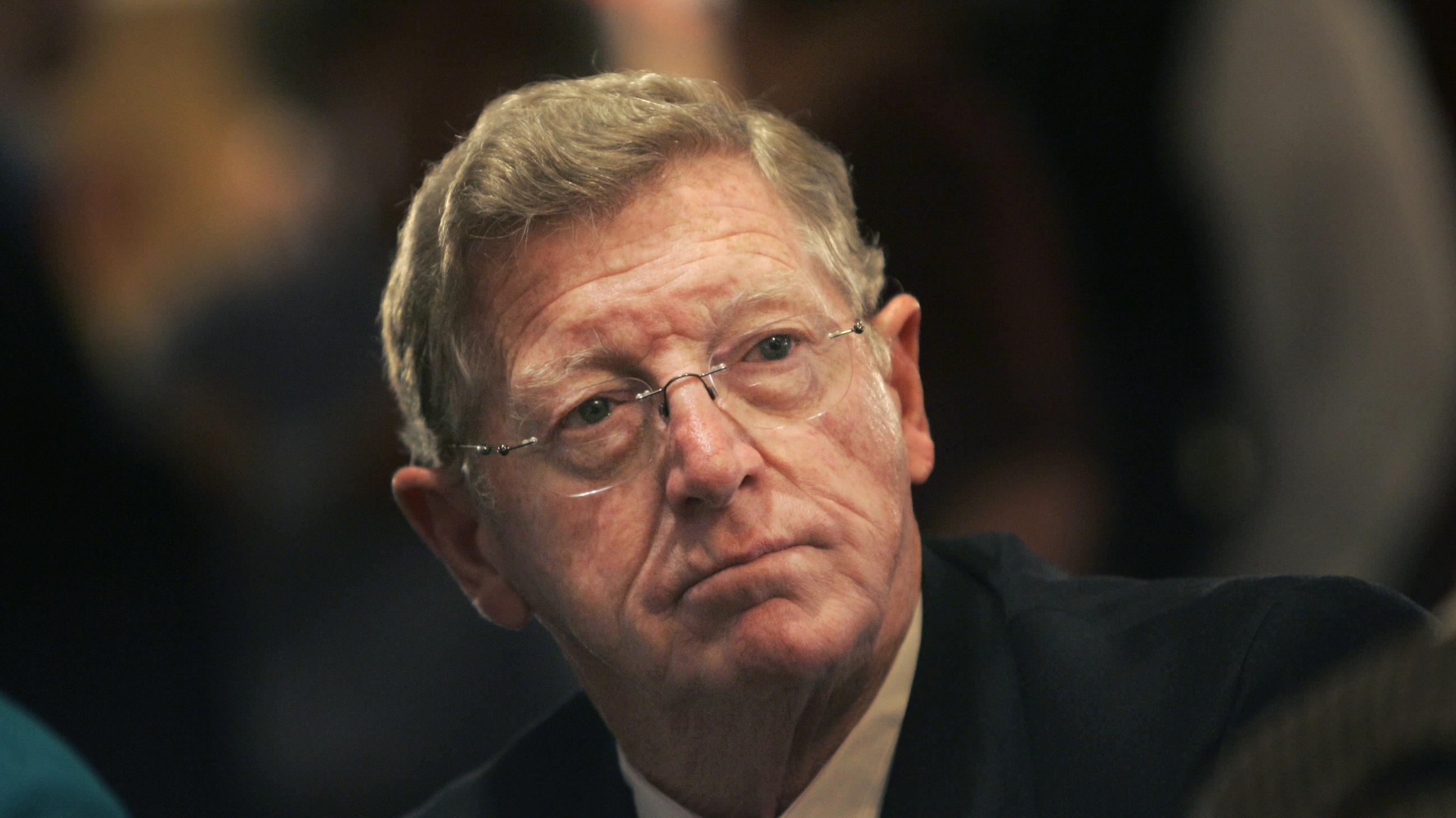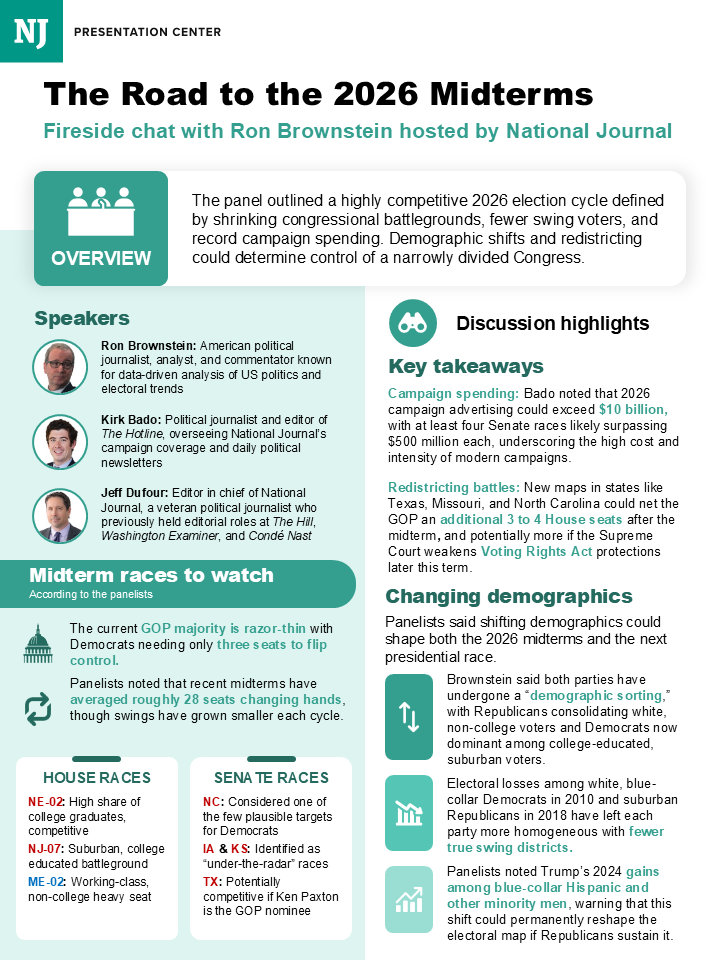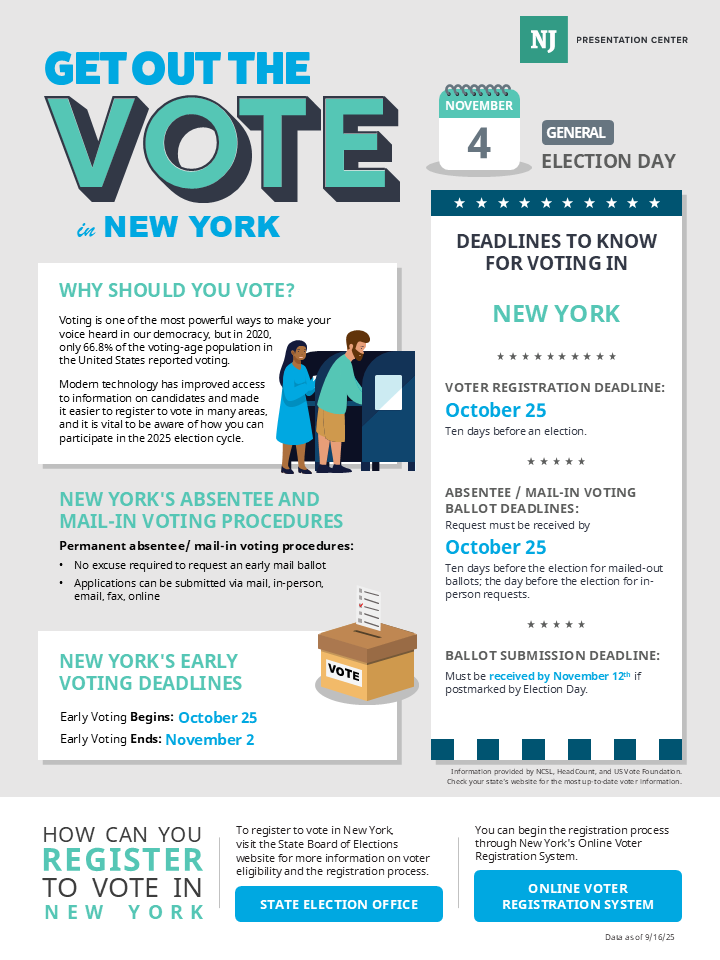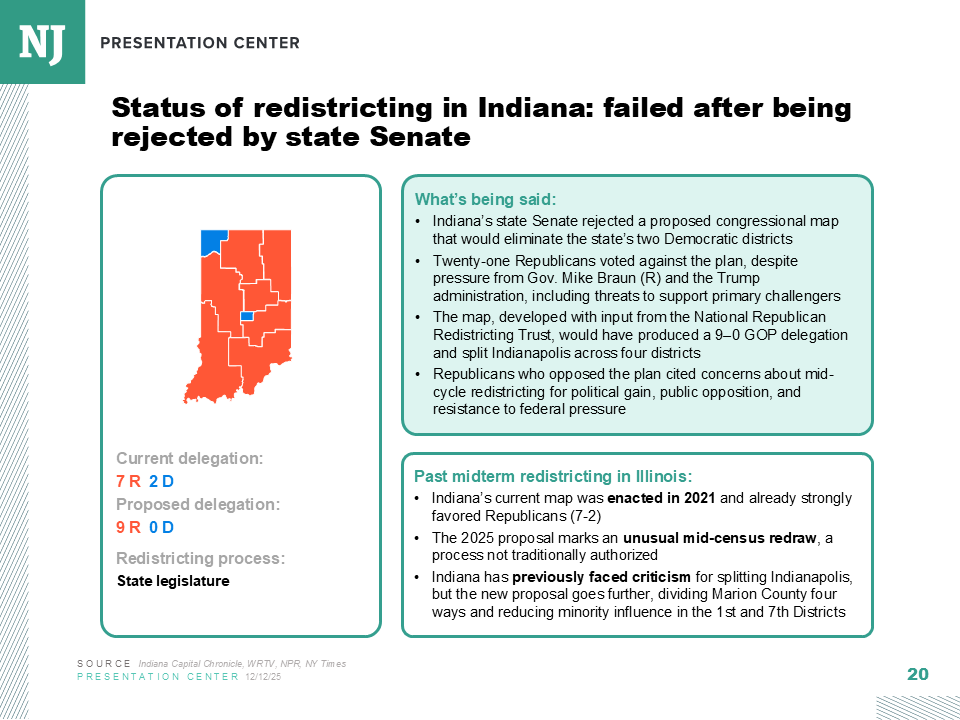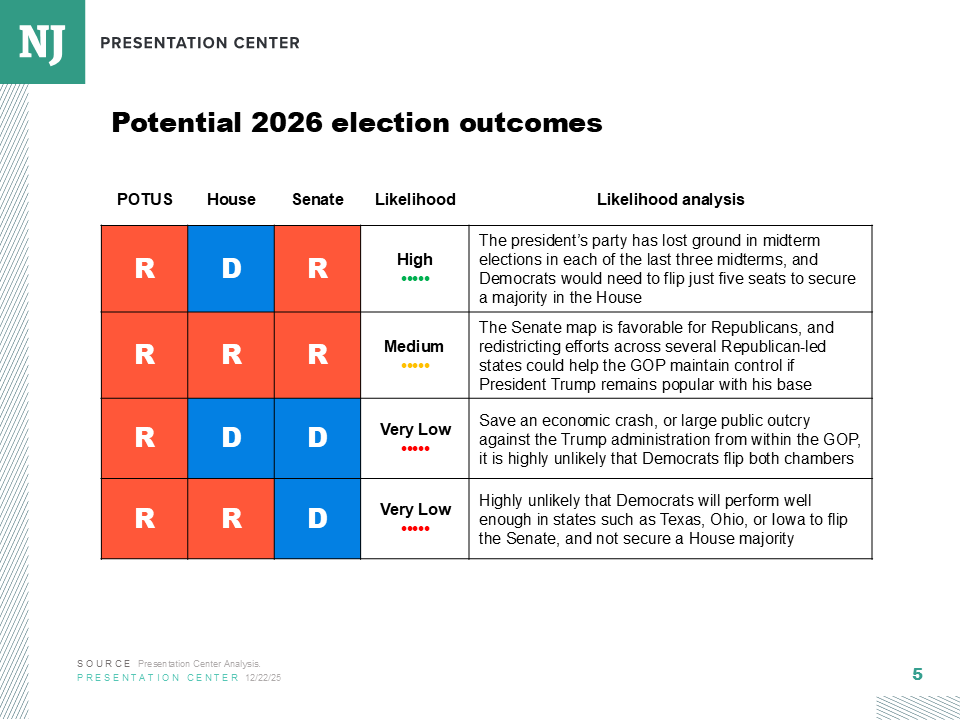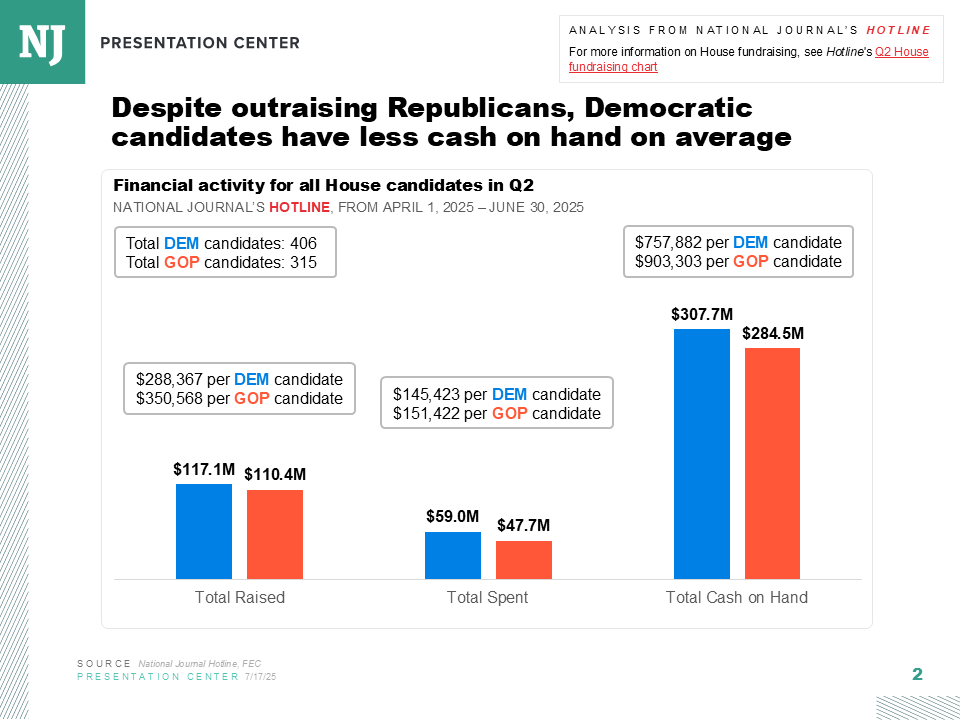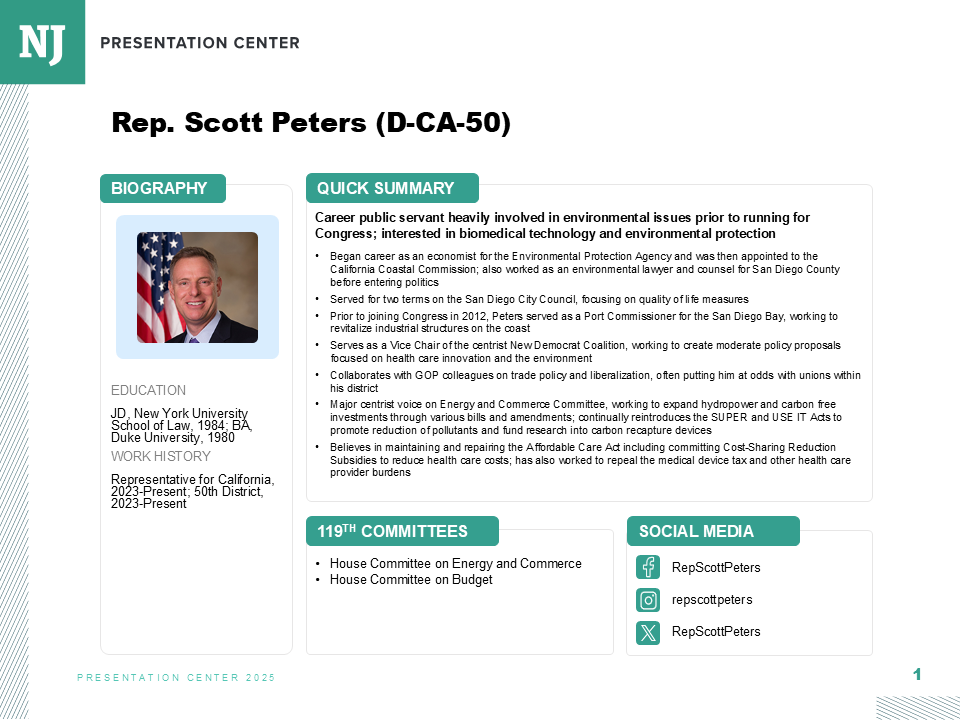With open races for governor and Senate in Iowa for the first time in nearly 60 years, Democrats see a rare opening in a state that has been steadily trending red. Renewed Democratic optimism following retirement announcements from Gov. Kim Reynolds and Sen. Joni Ernst, both Republicans, is likely to be matched with larger than usual investment in the Hawkeye State.
Yet enthusiasm and higher investment alone may not overcome the structural headwinds that have plagued Democrats in recent cycles. President Trump carried the state three times, widening his margin in each run.
“Open seats in Iowa tend to be pretty competitive, regardless of where they exist,” University of Northern Iowa political science professor Donna Hoffman said.

Republicans have coalesced around Rep. Randy Feenstra to succeed Reynolds—one of the most unpopular governors in the country. He’s likely to sweep the GOP primary thanks to his congressional district representing around 25 percent of the state.
State Auditor Rob Sand is the likely Democratic nominee, prompting the Iowa GOP to sound the alarm over his candidacy. Sand has centered his campaign on pragmatic governance over partisanship, while breaking from his party on some cultural wedge issues. His entrance to the race prompted The Cook Political Report with Amy Walter to shift the contest from solid Republican to lean Republican.
Sand is the only statewide elected Democrat, after the Democratic attorney general and treasurer lost reelection by roughly a percentage point each in 2022. Though running as a Democrat, the former registered independent told National Journal he doesn’t shy away from criticizing both sides.
“I don't think that either political party is actually very good at solving the problems that we face,” Sand said.

In the Senate race, Democrats don’t have a Sand. Several contenders are competing in the Democratic primary, all without a prior statewide win or bid. Meanwhile, Republicans are satisfied with Rep. Ashley Hinson taking Ernst’s place on the ticket, welcoming her $4.1 million war chest.
“Hinson is just already hitting the ground hard out of the gate,” said Tyler Campbell, an Iowa-based GOP strategist. “She’s a prolific fundraiser, she has a great team, and I think she’s going to be a unifying force for Republicans around the state.”
Hinson, a former TV news anchor, has established herself as a rising star in GOP politics beyond the Hawkeye State, hosting national Republican leaders and several 2024 presidential contenders at her annual Hinson’s BBQ Bash fundraiser.
“There is no one better for this fight than Ashley Hinson, a force with a proven record of fighting fiercely for Iowa, the determination to build a winning coalition, and the grit to earn every vote,” National Republican Senatorial Committee spokesperson Joanna Rodriguez told National Journal in a statement.
Even against a favorite such as Hinson, and without a strong candidate like Sand, Democrats aren’t counting themselves out of the running just yet.
Democratic Senatorial Campaign Committee spokesperson Maeve Coyle told National Journal in a statement that “Iowans are feeling the pain of the GOP agenda Ashley Hinson supports as chaotic trade wars threaten Iowa’s economy, and thousands of Iowans risk losing their health care thanks to Republicans’ Medicaid cuts and refusal to take action to stop health care costs from rising.”
State Rep. Josh Turek, a two-time Paralympian from a Trump-won district, has caught the attention of Senate Minority Leader Chuck Schumer and other Washington Democrats. A self-described “common-sense prairie populist,” Turek told National Journal his party has a “generational opportunity” to capture both statewide vacancies.
“We’re seeing even more energy and excitement than we even had in 2018 in terms of what we’re seeing for civic engagement,” Turek said. “You can see, particularly in a state like Iowa, we are ready for change.”
First Turek will have to clear the Democratic primary, facing state Sen. Zach Wahls and former Knoxville Chamber of Commerce Executive Director Nathan Sage.
With two highly competitive races shaping up, strategists and party officials told National Journal that both parties will invest significantly more in the state, with Democrats expected to outspend Republicans.
But winning the money race doesn’t guarantee anything. In 2018, when Reynolds was first up for election, Democrats spent around $12 million backing Fred Hubbell against the Republicans’ $7 million. During Ernst’s reelection campaign in 2020, Democrats and aligned groups poured $130 million into the state, over the GOP’s $90 million. Both Democratic candidates lost.
Strategists from both parties expect next year’s gubernatorial race to exceed state spending records, but they are less inclined to believe the Senate contest will exceed the 2020 race’s $220 million price tag during a midterm year.
“I think, from talking to Republicans here in the state, they are aware and concerned about Rob Sand,” said Jeff Link, a veteran Democratic strategist from Iowa. “They do not take that race for granted, and because of that, I think they’re going to pour a lot of resources into Feenstra.”
Link estimates the governor’s race could cost between $60 million and $75 million, and the Senate race could reach as much as $100 million. Iowa GOP Chair Jeff Kaufmann expects the Republican National Committee, which didn’t invest last cycle, and the Republican Governors Association to get involved.
Democrats will “have all the resources that they need,” Republican political strategist David Kochel said. But, he added, “they may not have all the voters they need.”
Republicans hold a nearly 200,000 registered-voter advantage over Democrats, but Hoffman warns against comparing apples to oranges. The law changed in 2021 so anyone who misses one general-election cycle is moved off the active voter rolls. Democrats have particularly struggled to recover in rural Iowa.
While Republicans have a clear advantage in the state, former Des Moines Register political reporter David Yepsen believes that, of the two races, Democrats have a stronger chance in the gubernatorial campaign. That race is likely to hinge on hyperlocal issues such as water quality, cancer rates, and a proposed carbon-sequestration pipeline, while the Senate race will be more subject to national headwinds.
Democrats say they feel confident they can play off of consistent GOP control in the state to place blame over one of the most pressing issues in the midterms: a struggling economy and rising costs. The U.S. Bureau of Economic Analysis ranked Iowa’s economy 49th in the country, and it is the only state, alongside North Dakota, where the economy shrank in 2024. Agriculture, a key economic driver, has also taken a significant hit from Trump’s tariffs against China, which was formerly one of the largest buyers of U.S. soybeans. Amid the trade war, China has begun buying more soybeans from Argentina at the expense of farmers in Iowa and other crop-dependent states.
“Whatever metrics you want to use, farmers are having a tough time. And if they're not happy, ain't nobody happy,” Yepsen said. “So that's something that's new to the political mix here, and it has encouraged Democrats, who have been very down about things in recent years.”
Democrats see parallels with former Kansas Gov. Sam Brownback, whose deep tax cuts drained his state’s budget in the 2010s and crippled funding for schools and services. After Brownback left office, the conservative state elected a Democrat as its next governor. Iowa now faces a $900 million budget deficit, after multiple rounds of tax cuts under Reynolds.
“They supported Kim Reynolds, and they have been supportive of Joni Ernst, and so that is the reality of anybody who runs in their place,” Iowa Democratic Party Chair Rita Hart said.
“They are running on that record, and they're complicit in that record. So they're going to have to answer for it.”
But Republicans say they aren’t worried about any negative impact of Reynolds and Ernst on the GOP field.
“I don't think of [Reynolds] as bringing baggage to other Republicans,” Kochel said. “I think if she was in the race, you know, you'd see a different dynamic playing out.”
Whether Democrats can capitalize on economic concerns will hinge on the sheer number of voters they can turn out. While Republicans look like they have an advantage, strategists and experts suggest the state is more purple than it may appear.
“Iowans are actually pretty comfortable voting for Democrats,” Sand said. “They have not been doing it to the same degree that they were in 2008, but they're not allergic to it.”

